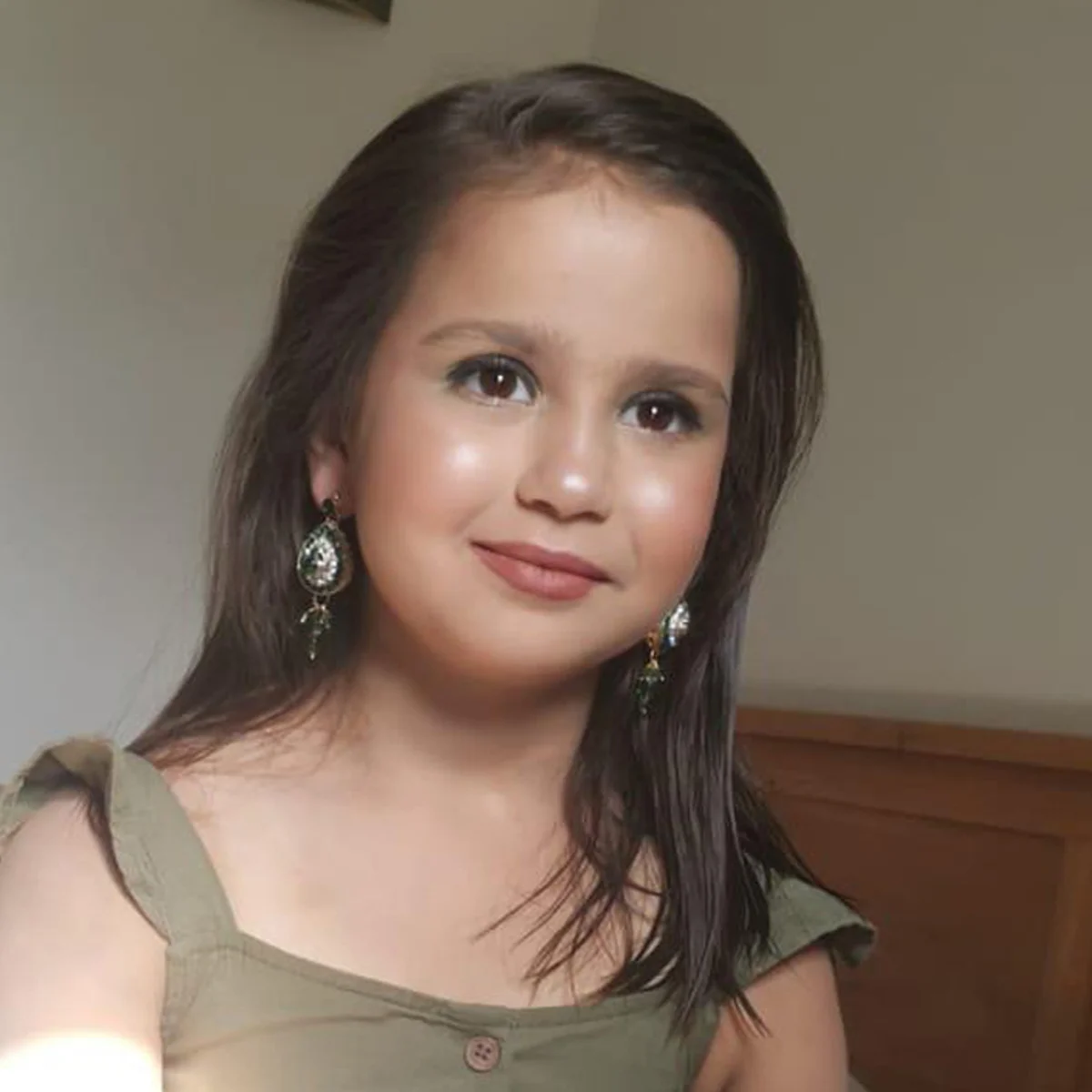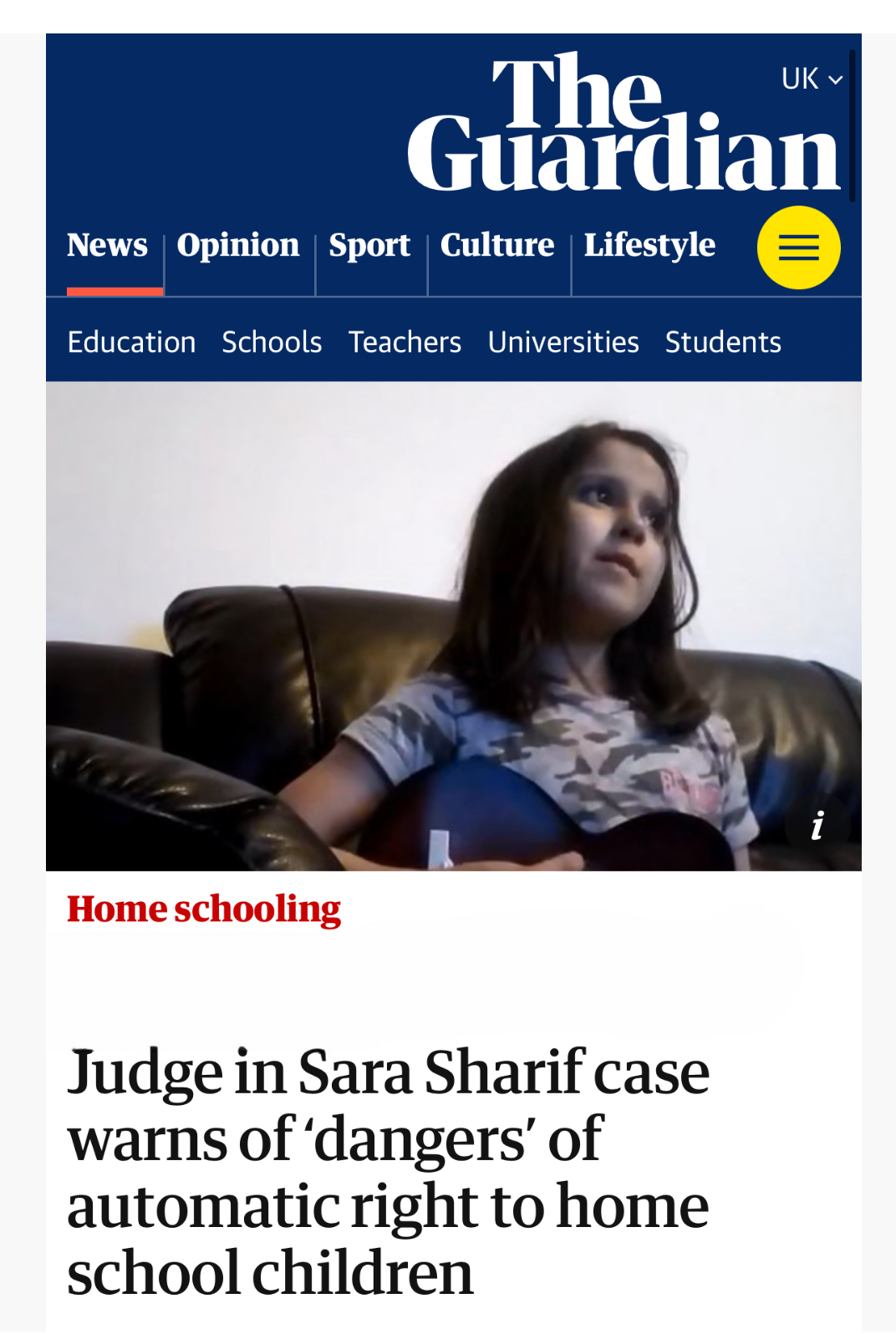The tragic death of Sara Sharif has shocked and saddened the nation. As a beautiful young girl with her whole life ahead of her, her passing has left a hole in the hearts of many. However, in the aftermath of this heartbreak, it is crucial to distinguish between the facts surrounding her death and the narrative some are trying to push.

Home Education and Its Misrepresentation
A concerning aspect of this tragedy and the reason I felt the need to discuss Sara on this blog has been the way home education has been unfairly linked to her death. Despite the fact that there is no evidence to suggest that home education played any role in this heartbreaking event, the media has seized the opportunity to associate the two. This has led to misinformation and misunderstanding about home education, painting it as a dangerous choice for children. In reality, the majority of families who home educate do so with care, love, and the child’s best interests at heart.
Home education, in its true form, is about giving children a nurturing environment where they can thrive academically, socially, and emotionally. Parents who choose to home educate are deeply committed to their children’s wellbeing and do everything in their power to ensure they grow up in a safe, supportive, and enriching atmosphere. Linking home education to Sara’s tragic death only serves to unfairly demonise a legitimate educational choice and spread unnecessary fear.
Whilst a case like Sara’s understandably raises questions about child welfare and safeguarding, it is deeply concerning that this tragedy is being used by the government and media to push through the controversial Children’s Wellbeing and schools Bill, while simultaneously painting home education as a safeguarding risk. This tactic appears less about protecting children and more about gaining control over an educational choice that is growing rapidly in popularity.
Sara Sharif: Let Down by Multiple Agencies
Sara was de-registered from her school in April 2023, and it is reported that she had been known to child protection agencies for some time before her death in August 2023. During the period where Sara was deregistered from school, she was still known to authorities, and her family was involved with various social services. The media like to call home educated children “missing” and “ghosts children” However Sara was neither – she was known to multiple agencies who failed to intervene effectively. While she was no longer enrolled in school at the time of her death, it’s important to note that Sara passed away during the school summer holidays. Even if she had remained registered in school, she would not have been attending in August anyway. Her abuse continued for years while she remained in the system, showing that merely being registered in school wouldn’t have saved her from the abuse that led to her tragic end.

The Role of the Media
The government and media are framing home education as inherently risky, implying that children educated at home are more vulnerable to neglect or abuse. This is not supported by evidence. Studies have consistently shown that abuse is no more prevalent among home educated children than those in school. In fact, many families choose home education to protect their children from bullying, unmet special educational needs, or other issues that traditional schools often fail to address.
The narrative that home education is a safeguarding issue shifts attention away from systemic failures in safeguarding processes that affect all children, regardless of where they are educated. By creating a scapegoat out of home education, the government avoids addressing the broader issues of underfunded social services and overwhelmed local authorities.
In the wake of Sara Sharif’s death, the media has also focused heavily on the issue of children’s safety and wellbeing. This is, of course, an essential conversation to have, especially when it comes to protecting vulnerable children. However, the way this narrative is being spun raises significant concerns. In particular, it seems that the media are using this tragedy as a way to further the governments agenda, pushing for greater control over children’s education and personal freedoms.
The proposal for the Children’s Wellbeing and Schools Bill is one example of how the media is framing Sara Sharif’s death as a reason for imposing more regulation on children’s education. This bill aims to implement stricter regulations on how children are educated, with particular attention to safeguarding measures. While safeguarding is undoubtedly crucial, the bill also seeks to implement a wide range of changes that could have serious implications for families, particularly those who choose to educate their children at home.

By using Sara’s death as a rallying cry for more regulations, the media is taking a tragedy and twisting it into an opportunity for political gain. It’s a dangerous approach that risks oversimplifying the complex issues surrounding child welfare and education, ultimately undermining the freedom of families who are doing their best to provide their children with a safe and supportive environment.
Media Complicity
The media plays a crucial role in shaping public opinion, and its coverage of Sara Sharif’s case has been disappointingly one-sided. Headlines and commentary have frequently implied a link between home education and safeguarding failures, despite the lack of evidence.
This sensationalist reporting stokes fear and prejudice against home-educating families, creating a climate in which intrusive legislation is more likely to be accepted by the public. Instead of holding the government accountable for systemic failures in child protection, the media is complicit in shifting the blame onto home educators.

The Real Goal: Control
The Children’s Wellbeing and schools Bill proposes mandatory registration and monitoring of home-educated children, with vague definitions of “suitable education” and “wellbeing.” These measures significantly expand state control over families, treating home educators as guilty until proven innocent. If you are yet to read the bill head over to my blog “What is the Children’s wellbeing and schools bill? Home Ed edition” for a simple breakdown on what it includes relating to home education. https://homeeducatewithhayley.com/?p=417
It is no coincidence that this push for regulation coincides with the rising popularity of home education. More families are choosing to educate their children at home, seeking personalised, flexible learning that traditional schools cannot always provide. Rather than celebrating this diversity in education, the government appears threatened by it.
By framing home education as a safeguarding risk, the government aims to justify intrusive oversight and impose school-like standards on families. This not only undermines parental rights but also erodes the freedoms that make home education such a valuable option for many children.
Safeguarding Is Everyone’s Responsibility
It is essential to recognise that safeguarding is a responsibility shared by all sectors of society—parents, schools, social services, and the government. Focusing disproportionately on home education diverts attention and resources away from addressing the real causes of safeguarding failures, such as underfunded services, overworked social workers, and ineffective communication between agencies.
If the government truly wants to improve child welfare, it should prioritise investment in social services and better training for professionals, rather than targeting home-educating families who are already providing excellent care and education for their children.
Conclusion: Let’s Not Be Distracted
The death of Sara Sharif is a tragedy that deserves a thoughtful, evidence-based response. Using her story to justify the Children’s Wellbeing and schools Bill is not only inappropriate but also harmful. It perpetuates a false narrative about home education, undermines parental rights, and distracts from the real issues in safeguarding.
Home educators and the wider public must call out this attempt to exploit a tragedy for political gain. Protecting children requires collaboration, honesty, and a commitment to addressing systemic failures—not scapegoating families who are doing their best to provide a safe, nurturing, and effective education for their children.
Let’s ensure that the memory of Sara Sharif is honoured with meaningful action, not with policies that serve hidden agendas.
